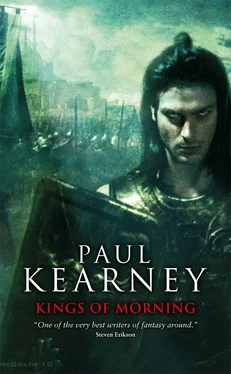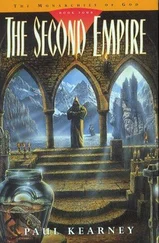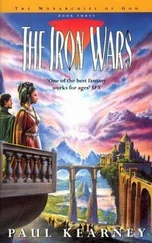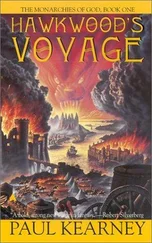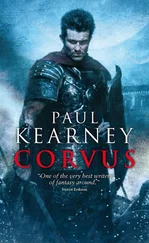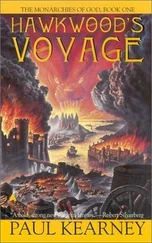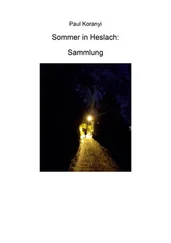Paul Kearney - Kings of Morning
Здесь есть возможность читать онлайн «Paul Kearney - Kings of Morning» весь текст электронной книги совершенно бесплатно (целиком полную версию без сокращений). В некоторых случаях можно слушать аудио, скачать через торрент в формате fb2 и присутствует краткое содержание. Жанр: Фэнтези, на английском языке. Описание произведения, (предисловие) а так же отзывы посетителей доступны на портале библиотеки ЛибКат.
- Название:Kings of Morning
- Автор:
- Жанр:
- Год:неизвестен
- ISBN:нет данных
- Рейтинг книги:4 / 5. Голосов: 1
-
Избранное:Добавить в избранное
- Отзывы:
-
Ваша оценка:
- 80
- 1
- 2
- 3
- 4
- 5
Kings of Morning: краткое содержание, описание и аннотация
Предлагаем к чтению аннотацию, описание, краткое содержание или предисловие (зависит от того, что написал сам автор книги «Kings of Morning»). Если вы не нашли необходимую информацию о книге — напишите в комментариях, мы постараемся отыскать её.
Kings of Morning — читать онлайн бесплатно полную книгу (весь текст) целиком
Ниже представлен текст книги, разбитый по страницам. Система сохранения места последней прочитанной страницы, позволяет с удобством читать онлайн бесплатно книгу «Kings of Morning», без необходимости каждый раз заново искать на чём Вы остановились. Поставьте закладку, и сможете в любой момент перейти на страницу, на которой закончили чтение.
Интервал:
Закладка:
Give them time. Give me time. Lord of us all, lend me your patience.
‘Majesty.’ It was Dyarnes, faithful as a hound, ever beside him. His father Midarnes had died at Kunaksa, leading the Honai, and now the son stood in his place.
God-of-all, Ashurnan thought — has it really been thirty years since that day?
‘Yes, Dyarnes.’
‘There is an intruder in the gardens — my men have him. Will you give me leave to see to it?’
‘Of course. You will miss the best of the wine, Dyarnes. I will have Malakeh keep you a cup.’
Dyarnes bowed deeply, then fastened his komis about his face and strode off.
Kouros paused with his cup halfway to his beard. ‘Is something amiss, father?’
‘Dyarnes has it. Enjoy your wine, Kouros. Smell the stars. Drink with your brother and let me see you be civil to one another.’
Kouros was one of those known across the empire as a Black Kefre. His hair was dark as a crow’s back and he was heavily built, but he had the eyes of the high castes. His mother was not here tonight — she disliked dining out of doors — and he had inherited her colouring.
Beautiful Orsana, whom Ashurnan had taken as First Wife some thirty-five years before. She came from Bokosa, capital of the vast, rich satrapy of Arakosia. Back in the half-mythic past before the Great Wars, her ancestors had been kings, and Ashurnan’s union with her had bound the proud Arakosans ever closer to the imperial family.
Ashurnan remembered the first few years of their marriage. It had been like coupling with a panther, and he could not help but smile at the memory.
His gaze travelled down the table. Rakhsar and Roshana, the twins borne by his second wife. They had their mother’s looks, as fine and graceful as the thoroughbreds her country reared. Ashana had been a beautiful, willowy girl, a gentle soul. Ashurnan had married the spitfire Orsana out of political necessity and pure lust, but Ashana had taken his heart. A Niseian princess, she had seemed too good for this world, and so it had proved. She had given Ashurnan the twins, and then died soon after — of a fever. Or so it had been decided. Ashurnan had not gone back to his First Wife’s bed since, for the rumours had tallied too closely with his own suspicions.
After that there had been minor wives, countless concubines, a garden of beautiful faces. But Orsana remained First Wife, his Queen, and she vetted them all. There would never be another Ashana, another woman to share his heart with. He had been lucky, that once.
The Great King raised his cup, and tilted it first to Kouros, his eldest son, and then to Rakhsar and Roshana, the twins whose mother he had loved. The three siblings returned his salute, and up and down the long tables the other guests let their conversations wither into the warm air, and watched.
He held their eyes one after the other. Kouros, dependable, thin-skinned, eternally suspicious and yet always on fire for some word of affection or commendation. Roshana, whose face seared something in Ashurnan’s heart, so that it was sometimes hard to look upon her beauty for the memories it evoked.
And Rakhsar, mercurial, sardonic, the brightest light of the three, and the most dangerous. Ashurnan loved his younger son, but did not pretend to himself that he knew him at all. Rakhsar’s flashing wit turned aside any attempt to know him. Roshana understood him, perhaps, but Ashurnan did not believe he ever would.
And there was the pity of it.
The Great King drained his cup, barely tasting the wine. Beside him the Taster sipped, and then nodded, and the royal cupbearer refilled it from the jar.
The three royal siblings drank their own wine, Kouros and Roshana barely sipping theirs, Rakhsar emptying his cup with a flourish and a grin. He had about him the air of a condemned man who is intent on savouring every morsel of his life, whereas Kouros was like a priest wedded to duty and penitence.
Kouros, and Rakhsar, blood of my blood, flesh of my flesh. One will be King, and one must die. That is the way our world works.
An image lashed through his mind — his brother’s face at Kunaksa as his own scimitar opened the throat below it. Ashurnan closed his eyes a second. Thirty years. He was an old man now, and in his dreams his dead brother’s face was always the same. He could still smell the dust of that day, kicked up in vast clouds by the horses. He could hear the Macht death hymn as they advanced.
He had witnessed a dozen battles since then, but always, Kunaksa was foremost in his mind. It had been his first, and though the imperial records might say otherwise, he knew it had been a defeat.
And now they come again.
God, I am too old. I do not have the strength. I am no longer sure I even have the wit to choose the right men to fight for me any more.
The wine smote him — he had eaten almost nothing. The sour suspicion that his Queen was trying to poison him cut the appetite. That cat-eyed bitch. How much of a hold did she have over Kouros? Could he be his own man?
And Rakhsar — would the cruelty in him ever bloom into full, disastrous flower?
I must stay alive, he told himself. There is no time for this. I am Great King, and it is I who will take on this fight, as I did once before.
He raised the hand which had killed his brother and stared at it. The liver-spots on the golden skin, the blue-wormed veins thick about the knuckles. Then he looked down the table at Kouros again. Imagine the empire ruled by those knotted brows, that thick-boned forehead, and behind him his mother, whom the palace slaves lived in terror of. Not fear, or respect, but stark terror. She had once bade the Honai rape a pretty little Bokosan noblewoman to death, because the girl had refused her beloved son’s advances.
Power is cruelty, in the last examination, Ashurnan thought. But for some the pain is an end in itself.
Kouros was an adequate leader of men, and he had a following in the army. The Arakosans provided the best cavalry in the empire, and they would follow him to the death, for his mother’s sake. If Kouros were to be discarded, it would mean something akin to civil war, here in the heartland itself. There was no other option.
And yet, watching Kouros’s powerful jaws champing his food, Ashurnan’s heart sank. The empire, clamped in those dour jaws. At any other time, it would knuckle under the Black Kefre and his mother, go on as it always had; but this was not any other time.
Malakeh leaned close, leaning on his ebony staff of office. Gaunt as blackthorn, the old Vizier had run the clockwork of the court for a quarter of a century.
‘Lord, the western messengers have been fed and are waiting.’
‘Where are they?’
‘On the Ivy Terrace. They have spoken to no-one.’
‘Good. I will go to them, Malakeh, alone.’
‘Lord — ’
‘Alone, Malakeh. We are not to be disturbed — no Honai. But tell Dyarnes.’
The Vizier bowed. Ashurnan almost thought he could hear the old man’s spine creak. He rose, holding out a hand to keep the assembled diners in their seats. Even after all these years, he still felt a flash of impatience at the protocol of the court. He had pruned away as much of it as he dared, but a Great King needed some pomp and mystery about himself, even among those who knew him well.
Kouros stood up despite the gesture, setting down his cup. Ashurnan hesitated a moment, and then motioned his eldest son to follow. He did not have the strength or the patience to put Kouros in his place in front of the whole table.
Or did he? Ashurnan turned, and said to Malakeh, ‘Have Prince Rakhsar join us.’
The Ivy Terrace was on the northern edge of the gardens, half a pasang away under the starlit trees. Ashurnan’s father, Anurman, had built it, as a place to sit and drink wine with his friends, his comrades-in-arms. Anurman had been a fighting king, a man who made and kept friends with an ease Ashurnan could only marvel at. He had drunk under the ivy there with Vorus, the Macht, and Proxis, the Juthan, both of whom had loved him like dogs, both of whom had betrayed his son. Proxis had taken Jutha out of the empire and now it was an independent kingdom. Vorus had let the Juthans leave at Irunshahr when the utter destruction of the Ten Thousand was teetering in the balance.
Читать дальшеИнтервал:
Закладка:
Похожие книги на «Kings of Morning»
Представляем Вашему вниманию похожие книги на «Kings of Morning» списком для выбора. Мы отобрали схожую по названию и смыслу литературу в надежде предоставить читателям больше вариантов отыскать новые, интересные, ещё непрочитанные произведения.
Обсуждение, отзывы о книге «Kings of Morning» и просто собственные мнения читателей. Оставьте ваши комментарии, напишите, что Вы думаете о произведении, его смысле или главных героях. Укажите что конкретно понравилось, а что нет, и почему Вы так считаете.
